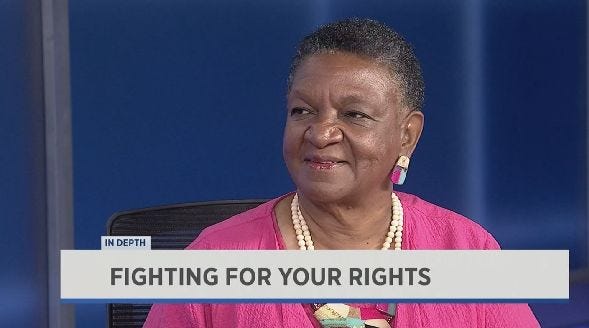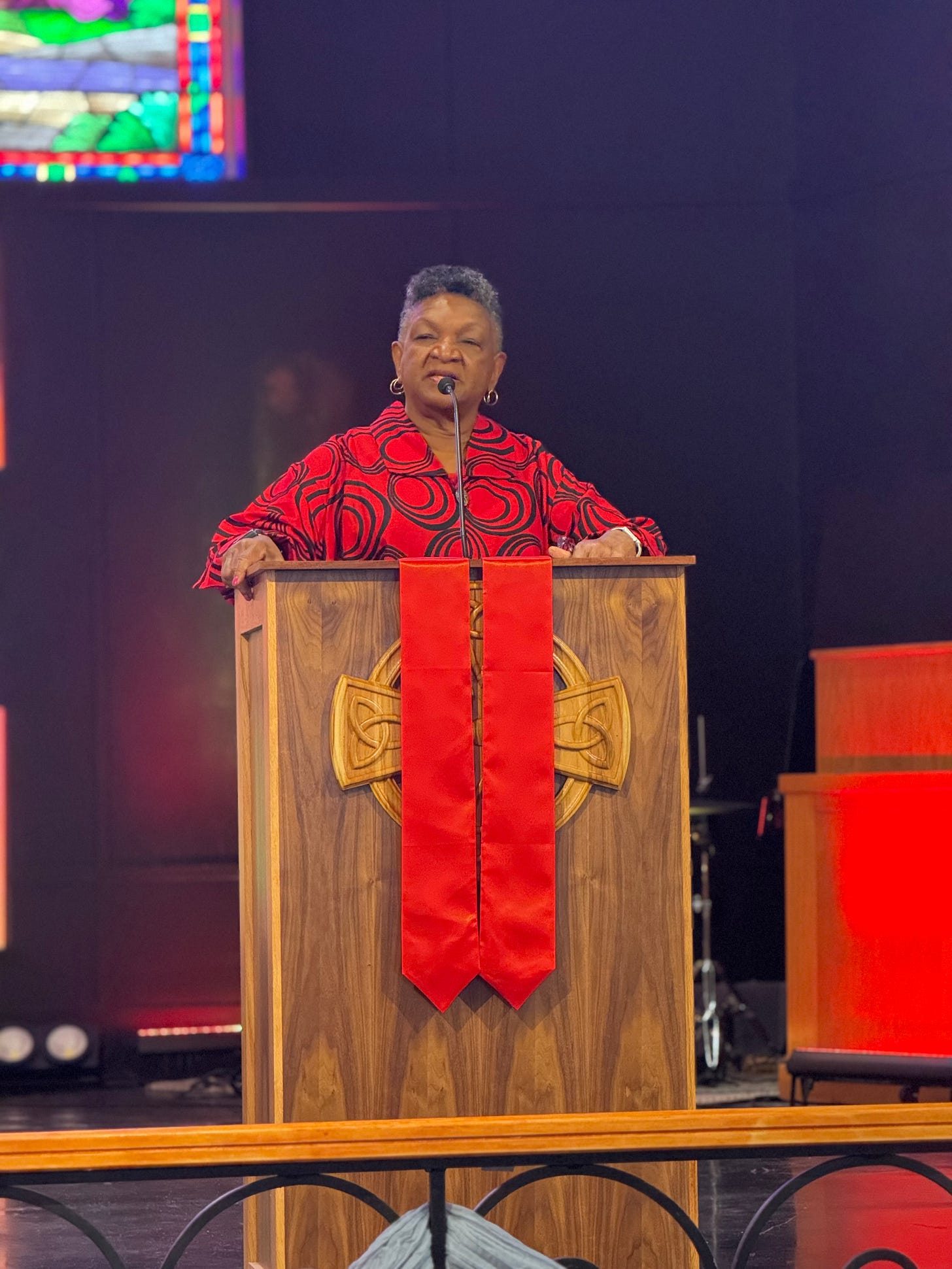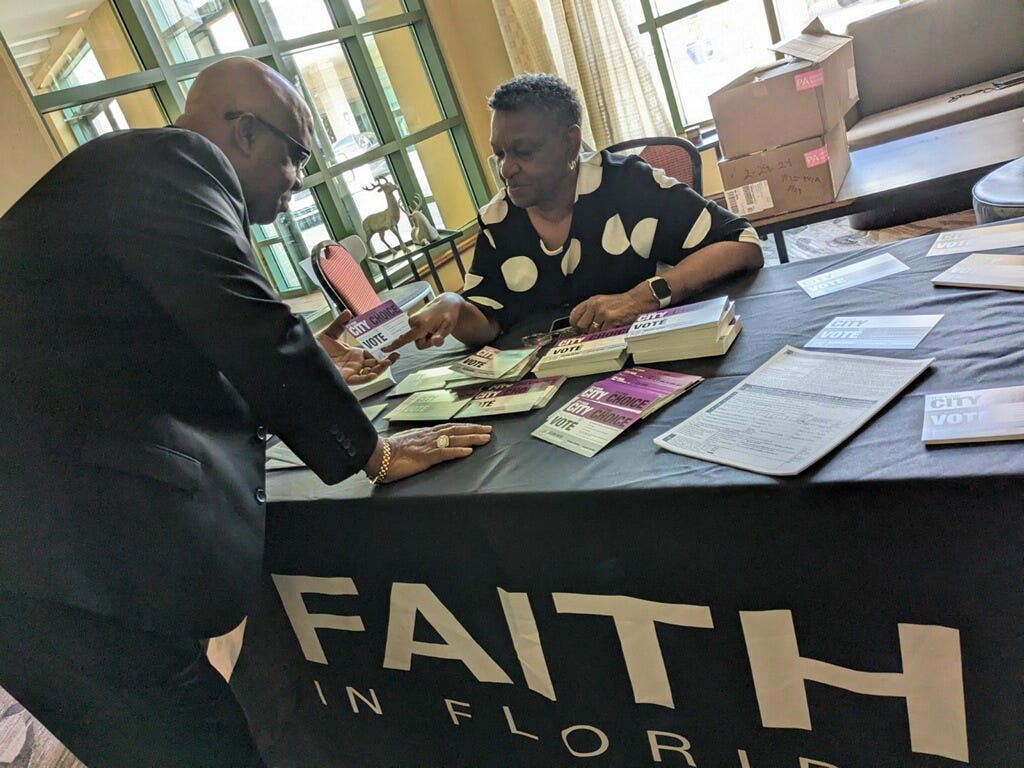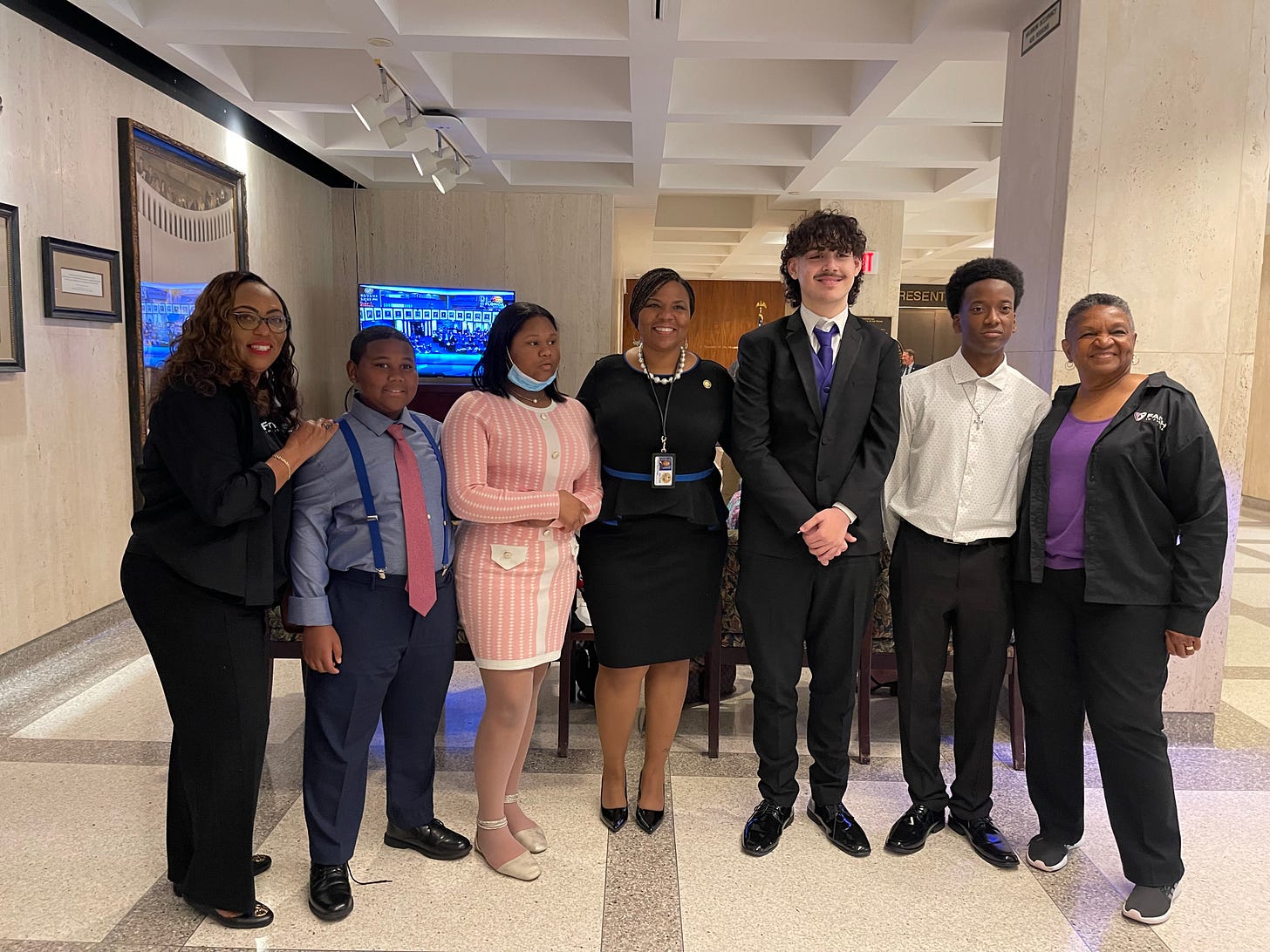Keeping On in Florida
Voter suppression is real, but Dr. LaVon Bracy and Faith in Florida are working to ensure eligible voters get to cast a ballot
By Martha Merson
Who will vote in Florida this election cycle and how will they vote? In an era of increased voter suppression, these are not trivial questions. Whether voters choose to go to the polls in person or complete a vote by mail (VBM) ballot, Faith in Florida continues its mission to support voting access.
Dr. LaVon Bracy is worrying overtime. In a recent conversation she told me that too many seniors in Florida are waiting at home for a ballot that isn’t coming. She and the Faith in Florida staff and volunteers are feverishly trying to contact people and tell them they need to re-apply to get a ballot in the mail. And if they haven’t re-applied, the ballot isn’t coming.
“The politicians say they have made voting more secure,” Bracy said. “What they have actually done is suppressed the votes of so many people. The last election showed most black and brown people were voting by mail. Now legislators have changed the law so you have to re-apply to vote by mail.”
Senate Bill 7050, passed by the Republican-led legislature in May 2023, dropped nearly one million voters from the state’s rolls, according to the independent watchdog group Florida Bulldog. In urban Florida, eIghty-plus percent were either Democrats or Independents. “The vote by mail provision is not valid for two cycles the way it was,” Bracy says. “In addition, if you don’t vote in two presidential elections, your name is dropped from the registered voter list.”
Over a million voters dropped from the rolls. I tried to let that sink in, but Dr. Bracy continued at a clip: “At one time more than 3 million people were approved for vote by mail ballots. The number has fallen to under one million. The voters themselves don’t know they aren’t on the list!”
Faith in Florida isn’t giving up. “Our main mission is that voices are heard,” Bracy says. “We work on issues like gun violence, immigration, and democracy. We make sure everyone feels a sense of belonging.”
Faith in Florida also works extensively with seniors who, Bracy says, aren’t as savvy with computers and smart phones. “We try to be creative. We have a QR code. We pass out information and ask them to register on line.” Yet many seniors still prefer a paper application to register or to apply for vote by mail.
“We can give them a paper application and an envelope,” Bracy says. “We can even give them a stamp. We don’t touch the paper and the electronic application goes directly to the state.”
A Lifelong Fight
Count on LaVon Bracy to keep at it, in spite of the setbacks and barriers. When she was little her father was president of the NAACP. “Racism was so unbounded, the KKK ran us out of St. Augustine and we moved to Gainesville. My mother was a schoolteacher who lost two jobs because of Dad’s advocacy.”
In 1964, Bracy’s father sued the Gainesville school district for defying integration orders. “He won a judgment that declared the schools had to integrate with all deliberate speed. After winning the case, he knocked on doors to find kids who would go to the all-white high school. I was one, the only senior. There were two in other grades.”
Her senior year, Bracy recalled, “was the most horrible year of my life. I was beaten, spit on, called the N-word, and kids left nasty notes in my desk. I’d find all kinds of things under my desk, like a dead rodent or a roach. I survived by remaining silent until I was able to graduate. And I said to myself, ‘I know how it is to be treated as a second class citizen, to not have a voice. I’ll spend my life registering voters so they will always have a voice.’ I’ve been doing this on the ground for 55 years. I will speak up for those who can’t.” She does and she has passed that spirit on to her daughter, LaVon Bracy Davis, who serves in the Florida legislature.
Bracy knows, at her age, that a new president or governor “won’t change my lifestyle in significant ways. I’m trying to advocate for my grandkids and great grandkids. When I hear a person say, ‘I don’t need to vote,’ I feel grief. I can only wonder: What are you listening to? What are you reading? What are you thinking that you can make such a statement?”
Issues not Parties
Because Faith in Florida is nonpartisan coalition representing 800 churches, Bracy talks about issues, not parties or candidates. “I ask people who declare they won’t vote: What is important to you? What keeps you up at night? Usually I hear: ‘Rent is high. I can’t afford insurance. The cost of groceries is too high. The educational system is not good for my kids.’ I listen and invite them to be part of the solution. I tell them, ‘When you vote, you can put people in office who are like-minded and who will advocate for you. Unless you do that, you will continue to have those issues and be frustrated.’”
Faith in Florida does extensive voter training, explaining what will be on the ballot. “We say: Don’t go in there thinking you vote for one thing and you are done. Be aware that the president is just one of the choices on your ballot.”
Bracy also talks about Project 2025. “These are policies that some would like to see implemented in the first 100 days of a new administration. People have to understand, when you are not participating, there will be consequences.”
Faith in Florida Is Present
Dr. Bracy notes that Faith in Florida has a presence in 42 of Florida’s 67 counties. As a nonprofit, it trains volunteers for in-person and remote voter contact. Collaborations with grassroots groups and individual volunteers are welcome. Anyone interested in contacting voters can join the volunteer pool. Email LaVon Bracy, lbracy@faithinflorida.org.










Thank you for illustrating how pernicious the Florida Republican voter suppression has been. And thank you, Dr. Bracy, for fighting the fight as a good and faithful servant.
Hoping that a new Congress and new President can soon pass and sign the John Lewis Voting Advancement Act as well as the provisions of Freedom to Vote.
Keep the faith!